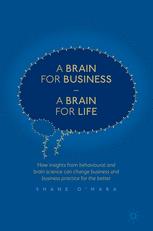

Most ebook files are in PDF format, so you can easily read them using various software such as Foxit Reader or directly on the Google Chrome browser.
Some ebook files are released by publishers in other formats such as .awz, .mobi, .epub, .fb2, etc. You may need to install specific software to read these formats on mobile/PC, such as Calibre.
Please read the tutorial at this link: https://ebookbell.com/faq
We offer FREE conversion to the popular formats you request; however, this may take some time. Therefore, right after payment, please email us, and we will try to provide the service as quickly as possible.
For some exceptional file formats or broken links (if any), please refrain from opening any disputes. Instead, email us first, and we will try to assist within a maximum of 6 hours.
EbookBell Team

0.0
0 reviewsBehaviour change is hard, but O’Mara shows that by adopting strategies that are well-founded in the science of brain and behaviour individuals and organisations can adapt to the demands of the modern world.
The brain matters in business. The problem is that our brains have many biases, heuristics and predilections that can distort behaviour and decision making. The good news is that we know more about how these work than ever before.
O’Mara’s starting point is that, as our behaviour arises from the structure and function of our brains, careful examination of a series of brain–based (‘neurocognitive’) analyses of common aspects of human behaviour relevant to business and management practice reveals lessons that can be used at work.
He begins by looking at neuroplasticity and how it is enables a shift from a restrictive ‘fixed mindset’ to an enabling ‘growth mindset’. He shows how this changing mindset approach – where the focus is on task and improvements based on effort – is scalable within organisations.
Next, as the brain is a living organ like the heart and lungs, O’Mara shows how to keep it physically in the best possible shape before examining how we exercise control over our behaviour, build resilience and create positive brain states. He also considers the implications for business of our brains wiring for status and illustrates how research shows that it is possible to de-bias assumptions about gender and race – and the impact that this has on performance.